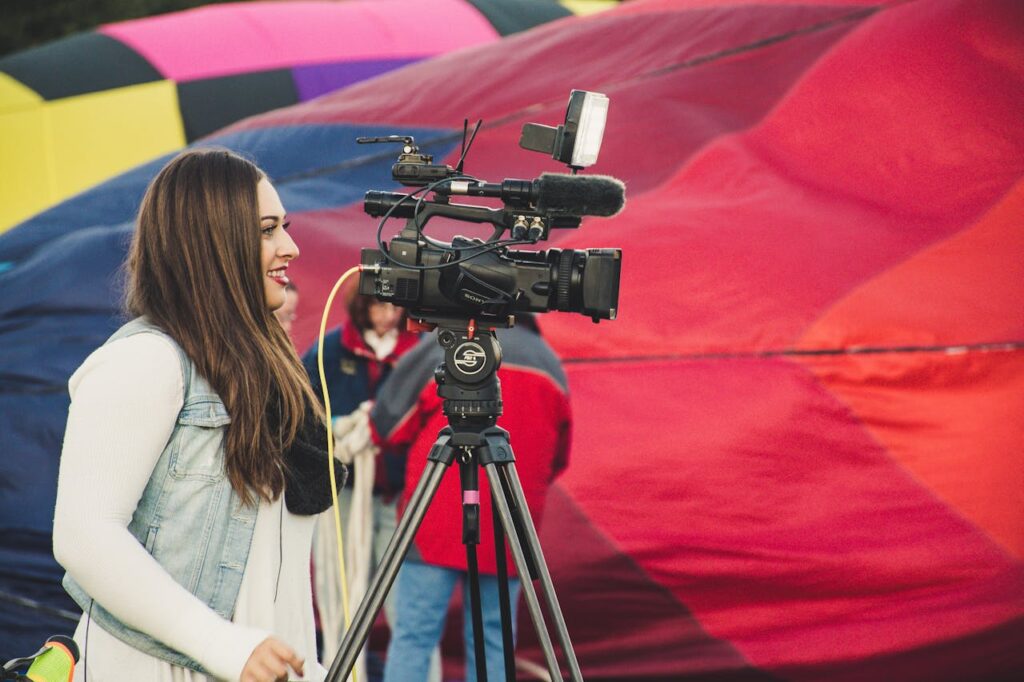Creating a press kit that stands out requires more than just static text and images in today’s media landscape. Video content has become a powerful tool for capturing attention and conveying messages quickly and effectively. According to Wyzowl’s Video Marketing Statistics 2024, 91% of businesses use video as a marketing tool, with short-form video emerging as one of the most effective formats. Media professionals increasingly prefer press kits that include concise, well-produced video components that tell stories visually and provide ready-to-use content. By incorporating shortform videos into press kits, organizations can significantly increase their chances of media coverage while providing journalists with engaging, shareable content that resonates with their audiences.
5WPR Insights
Understanding the Role of Shortform Video in Press Kits
Shortform videos serve as dynamic components that bring press kit content to life. These brief video segments, typically under 60 seconds, provide journalists and media outlets with easily digestible content that can be quickly reviewed and repurposed. According to Prezly’s press kit research, media professionals spend an average of just 2-3 minutes reviewing a press kit, making short, impactful videos an ideal format for conveying key messages.
The addition of video content to press kits has shown measurable benefits. Studies by eReleases indicate that press kits containing video elements receive up to 45% more media inquiries compared to those without video content. This increased engagement stems from videos’ ability to convey complex information quickly while providing visual interest that text alone cannot achieve.
Types of Shortform Videos for Press Kits
Executive Introductions
Executive introduction videos offer a personal touch to press kits by allowing company leaders to speak directly to media contacts. These brief clips, typically 30-45 seconds, should present key messaging while showcasing the personality and expertise of leadership team members.
The most effective executive introduction videos focus on:
- A clear, concise message about the company’s mission or latest developments
- Professional yet approachable delivery that builds credibility
- High-quality audio and visual production that reflects brand standards
- A strong call-to-action that encourages media follow-up
Customer Explainer Videos
Customer explainer videos demonstrate products, services, or solutions in action. These videos should be straightforward and informative, typically running 45-60 seconds. According to Wyzowl’s research, 94% of viewers say they’ve watched explainer videos to learn more about products or services.
Effective customer explainer videos include:
- Clear demonstrations of key features or benefits
- Real-world applications and use cases
- Customer testimonials or user feedback
- Visual demonstrations that simplify complex concepts
Visual Proof Points
Visual proof point videos provide evidence of claims, achievements, or milestones. These can include event highlights, product demonstrations, or statistical visualizations. The key is to present compelling evidence in a visually engaging format that supports your narrative.
Common types of visual proof point videos include:
- Time-lapse footage of events or processes
- Before-and-after comparisons
- Data visualization animations
- Behind-the-scenes glimpses of operations
Technical Specifications and Best Practices
Video Format and Quality Standards
Press kit videos must meet professional technical standards to ensure easy usage by media outlets. According to Filestage’s press kit guidelines, videos should be:
- Available in multiple formats (MP4, MOV)
- Compressed for quick downloading while maintaining quality
- Provided in both high and low resolution versions
- Properly labeled with clear file names and metadata
Accessibility Considerations
Making videos accessible ensures broader usability and compliance with media requirements. Key accessibility elements include:
- Closed captions for all spoken content
- Transcripts provided as supplementary materials
- Alternative text descriptions for video thumbnails
- Audio descriptions when necessary
Distribution and Integration Strategies
Embedding and Hosting Solutions
Proper video hosting and embedding options make content easily accessible to media contacts. Popular solutions include:
- Professional hosting platforms like Vimeo or Wistia
- Cloud storage with direct download links
- Embedded players with sharing capabilities
- Mobile-optimized viewing options
Organization Within Press Kits
Videos should be logically organized within press kits for easy navigation. This includes:
- Clear section headings and descriptions
- Thumbnail previews with duration indicators
- Related content groupings
- Download instructions and technical specifications
Measuring Success and Impact
Key Performance Indicators
Track the effectiveness of video components through various metrics:
- Video view counts and completion rates
- Download statistics
- Media pickup and coverage rates
- Journalist feedback and engagement levels
Analytics and Reporting
Implement comprehensive tracking to measure video performance:
- Use UTM parameters for link tracking
- Monitor social sharing and engagement
- Track media coverage resulting from video content
- Analyze journalist interaction patterns
Optimizing Video Content for Media Use
Length and Pacing
Keep videos concise and engaging:
- Aim for 30-60 seconds maximum length
- Start with the most important information
- Maintain consistent pacing throughout
- End with clear calls to action
Branding and Style
Maintain professional standards while reflecting brand identity:
- Consistent visual branding elements
- Professional sound quality
- Clean, simple graphics
- Clear company messaging
Conclusion
Incorporating shortform videos into press kits has become essential for modern media relations. By creating well-produced executive introductions, customer explainers, and visual proof points, organizations can significantly increase their chances of media coverage while providing journalists with valuable, ready-to-use content.
To get started, focus on producing high-quality videos that align with your brand messaging and meet technical requirements for media use. Ensure proper organization within your press kit and implement tracking mechanisms to measure success. Regular updates based on performance data and journalist feedback will help optimize your video content strategy over time.
Remember that successful press kit videos combine compelling storytelling with technical excellence to create assets that journalists want to use. By following these guidelines and maintaining high production standards, you can create video components that strengthen your press kit and increase media engagement.

More PR Insights
How PR Builds Trust And Credibility For Upselling
Why Your SEO Team Should Sit in on PR Planning
How To Hire And Structure An Effective In-House Brand Journalism Team